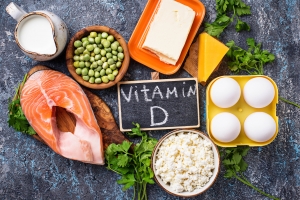The gut microbiome is made up of trillions of bacteria that live in our digestive tract, with a strong influence on our digestive function as well as overall health and well-being. It may come as a surprise, but around 70% of our immune system resides in our gut and our gut bacteria play a crucial role in supporting development of our immune cells and helping them to identify foreign invaders.
 The gut lining acts as a protective barrier and plays a crucial role in regulating which particles can pass through and into the blood stream. A robust intestinal lining consists of gate like structures which allow digested particles of food to pass through, (providing nutrition) to the rest of our body, whilst preventing the passage of larger and potentially harmful particles. However, there are instances where the intestinal lining becomes damaged, whereby the gate like structures no longer function as they should. This means larger, undigested particles can easily enter the blood stream and will be treated as foreign invaders. This intestinal permeability, sometimes referred to as ‘leaky gut’ can cause you to become highly sensitive to a variation of foods in your diet. Particles from these foods will pass through the lining and set off a cascade of reactions, leading to inflammation as a result of your immune system thinking it is under attack.
The gut lining acts as a protective barrier and plays a crucial role in regulating which particles can pass through and into the blood stream. A robust intestinal lining consists of gate like structures which allow digested particles of food to pass through, (providing nutrition) to the rest of our body, whilst preventing the passage of larger and potentially harmful particles. However, there are instances where the intestinal lining becomes damaged, whereby the gate like structures no longer function as they should. This means larger, undigested particles can easily enter the blood stream and will be treated as foreign invaders. This intestinal permeability, sometimes referred to as ‘leaky gut’ can cause you to become highly sensitive to a variation of foods in your diet. Particles from these foods will pass through the lining and set off a cascade of reactions, leading to inflammation as a result of your immune system thinking it is under attack.
Given the current climate, in addition to providing our body with the nutrients it needs, optimising digestive health is a vital piece of the puzzle when supporting immune function.
WHAT CAN I DO TO SUPPORT MY GUT AND IMMUNE HEALTH?
Feed your bacteria
- Include fermented foods in your diet to help support a balanced microbiome e.g. sauerkraut, kefir or live yoghurt. Each individual’s microbiome is different, so start off slow and introduce these foods one at a time.
- Also include specific foods which contain fibres to feed your beneficial gut bacteria e.g. sweet potato, leeks, bananas, onions and garlic.
Eat the Rainbow
Include a rainbow of colourful fruits and vegetables. Variety ensures a diversity of nutrients and fibre, supporting a diverse, healthy gut microbiome and therefore maintaining a balanced immune system.
Vitamin D
 This fat-soluble vitamin is crucial for immune regulation and supporting the integrity of your intestinal lining – commonly catching colds and infections could be a sign that your Vitamin D levels are low. Given the lack of sunlight exposure during winter months, UK government guidelines recommend that we should be taking a supplement (10μg) daily, from September to March. Similarly, include vitamin D rich foods such as egg yolks, full fat dairy products, fortified foods and oily fish to ensure you are getting a small amount through your diet.
This fat-soluble vitamin is crucial for immune regulation and supporting the integrity of your intestinal lining – commonly catching colds and infections could be a sign that your Vitamin D levels are low. Given the lack of sunlight exposure during winter months, UK government guidelines recommend that we should be taking a supplement (10μg) daily, from September to March. Similarly, include vitamin D rich foods such as egg yolks, full fat dairy products, fortified foods and oily fish to ensure you are getting a small amount through your diet.
You can find Zara on instagram @zarasyednutrition, zarasyednutrition.com, or contact Zara via email, info@zarasyednutrition.com
Get in touch today to schedule a complementary discovery call to discuss your health concerns and how we can support you towards optimal health.
About Zara Syed



Leave a Comment: